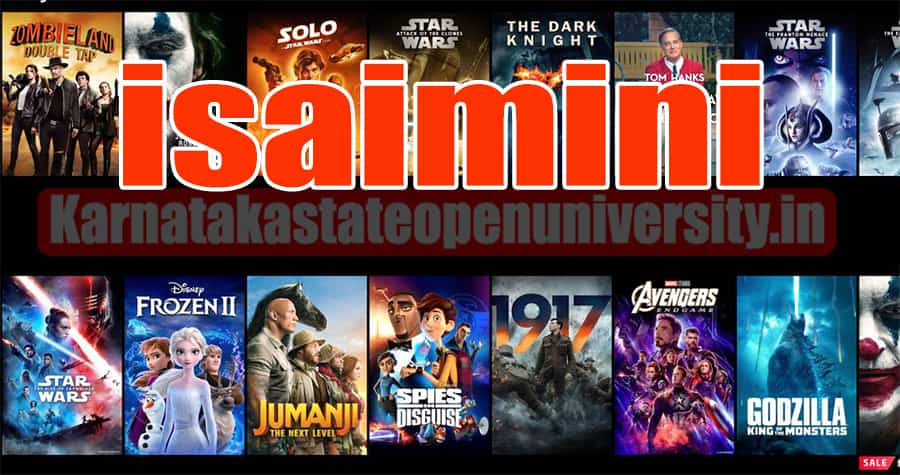
Do the knowledge gained from everyday activities count as education? Or do school is the sole way to learn? The importance of education is not exclusive to the walls of the classroom, but is accessible through different platforms and self-learning. Although academic institutions such as schools and colleges continue to be the most prominent educational institution, learning starts from home in the home itself. Let’s look at different kinds of education through this blog!
What is education?
The process of education is developing knowledge, skills and habits, or values, through different methods like education, training, discussion and research, among others. It helps people develop an awareness of what is the right and wrong. You can only succeed and meet the goal when they possess the correct knowledge, mindset and mindset. Education also provides people with the appropriate tools to evaluate their thoughts and interests and also with savvy ways of communicating their thoughts and ideas.
Formal Kinds of Education
Formal Education is the fundamental method of learning that is typically found in schools. It is an organized method of going to at a college or college and gaining knowledge from teachers who have the basic and instructive abilities.
No matter what school, either private or public, only certified teachers with certifications in their chosen field can offer formal education. Education that is formal begins at elementary school level, and progresses into high school, and then beyond. In this type of setting, the curriculum is pre-determined and based on.
Examples of formal education:
- Classroom Learning
- School certification/grading, college, and university degrees
- The planned education of various subjects with a specific syllabus that is learned through the institution.
The characteristics of formal education:
- It uses a specific of grading systems
- It’s well-planned and has established guidelines for the future.
- In accordance with the guidelines in the Bible, a proper fee payment must be paid each month
- Professional teachers are employed to instruct the students.
- The prescribed syllabus must be completed within a specified period of time
- Formal Education is based on a hierarchical system from the beginning of school to the 12th grade
The advantages of formal education
- The entire curriculum for formal education is typically planned and arranged.
- Formal Education is taught by teachers in more organized and organized manner.
- The context that is included in the curriculum for schooling is among the essential information that students must be able to acquire.
- The classes taught in formal education are certified and endorsed by a respected body of educators.
The disadvantages of formal education
- Due to the repetitive nature in the curriculum, it’s quite common for students to become bored with formal education.
- The stress of scoring and a constant competition to earn higher grades can affect the mental well-being of students.
- The formal education course are generally more expensive.
- If the system of education that provides the formal school isn’t authorized, it could be a waste because the certificate does not have any worth.
Informal Types of Education
What ever insightful information, skills or skill that you acquire without the assistance of a well-structured classroom instruction could be classified as an informal type of education. Informal education begins at the age of just a toddler. Activities such as how to eat food, drinking water, washing the hands and sanitation, etc. are a few lessons that can be classified under the category of Inform Learning. Informal learning or education does not stop at the classroom, but rather the knowledge gained with no intention to learn. The most prominent examples of informal education include a field trip to the art gallery, different levels of homeschooling, etc.
Exemples from Informal Education:
- Basics of education are taught such as numeric characters.
- Someone who learns their mother-tongue.
- Instantaneous learning “if a person standing in a bank learns about opening and maintaining the account at the bank from another individual.”
The characteristics of informal education:
- It’s not planned, and there is no timetable in play.
- There is no curriculum involved.
- You can learn by observing any individual as it’s not required to study from a teacher who is a professional
- There isn’t any fee or other charges associated with this method of education.
- Even the everyday things we encounter can count as informal learning
Benefits of informal education
- Education in informal settings is extremely natural, and it can happen any time and anywhere.
- The courses offered in Informal Education required regualr practice and polishing.
- This makes it more flexible than other kinds of education, there’s no set time frame for learning something with informal education.
- It is not necessary to be an expert to receive informal education.
The disadvantages of informal education
- It is possible that you will get the wrong information if don’t use a legitimate source
- You could end up taking an extended time to master the skill since it is not an exact time frame.
- In the absence of a firm structure, there isn’t any appropriate discipline being adhered to there is no proper discipline followed.
- The final product is not easily defined or verified.
Non-Formal Types of Education
Non-Formal Education follows the same lines as Formal Education, but it can be more flexible than formal education. It’s essentially general adult education, literacy, or college equivalent preparations. There are many different kinds that are offered in education could be described as a blend of formal and informal learning where there is a pre-planned and planned learning, but there isn’t a specific curriculum that you must adhere to or must be completed in a specific time.
The most popular method used to explain this form of learning is to have an online tutor. In this scenario the teacher is however, they are not certified. A established syllabus needs to be followed, however there are a few alterations to be made to the course. It is not an unintentional learning process, but rather you are aware of the process of learning.
Examples of non-formal educational opportunities
- The non-formal curriculum includes activities like swimming lessons.
- Programmes that promote Fitness.
- Adult Education courses which are community based.
- A few adult-friendly courses are free for Education are offered by an organization.
The Characteristics of Non-Formal Education
- It’s not part of the syllabus for the school system.
- Flexible enough to adapt to the student’s normal study schedule.
- You can begin a formal education at any at any age.
- Non-formal education is both recognized and uncertified.
- The structure of education can be at times full-time as well as part-time.
- The course syllabus for the non-formal courses usually includes both practical and theoretical methods.
Benefits of non-formal education
- Non-formal educational systems are generally accessible for both private and public domains.
- There’s no need to sit for exams regularly for this type of education.
- These certificates and diplomas do not indicate your talent, they are only used to help you develop your skills.
- Through skill development classes This type of education allows students to apply their knowledge of the theory to apply it in their daily lives.
Advantages of Non-Formal Education
- If there is no teacher or an expert, there could be false information being given away.
- There aren’t any regular tests that are conducted, which could reveal the student’s competence
- Unknown institutions can give false certifications that have little worth.
In addition to these well-known kinds that are offered in schools, Special Education is a popular one. It is evident by its name the common notion people believe about this type of education is to teach disabled children. It is also helping students who have difficulty catching with the speed of the classroom or in college.
FAQs
1. What is the difference between formal educational and informal?
For formal Education:The term “formal education” is the most basic form of education that one usually encounters in the schools. It can be described as an organised method of attending an institution of higher learning or a the university, and having educational experiences from teachers by using the fundamental and instructional abilities.
Informal Education: Insightful information skills, expertise, or art that you acquire without the assistance of structured classroom instruction could be classified as an informal type of education. Informal education can begin from the time one is an infant.
Non-formal Education: Non-Formal Education follows the same principles as Formal Education, but can be more flexible than Formal Education. It is essentially about general adult education, literacy or college equivalent preparations. There are many different kinds that are offered in education could be described as a mix of formal and informal education, where there is a pre-planned and planned learning, but there isn’t a specific curriculum that you must follow or has to be completed in a specific time.
2. What is the totality in education?
E is for Energy, D – Discipline, U – Unity, C Confidence, – Aim T – Talent I’m interested, O – Opportunity, Nationality is the full definition of education.We hope that, after reading through this article, you are now more aware of the various types of education. If you’re looking to build your career in another country contact the Leverage Education and we’ll assist you in the process to achieve this. For more information, schedule an appointment for free counseling with us!








